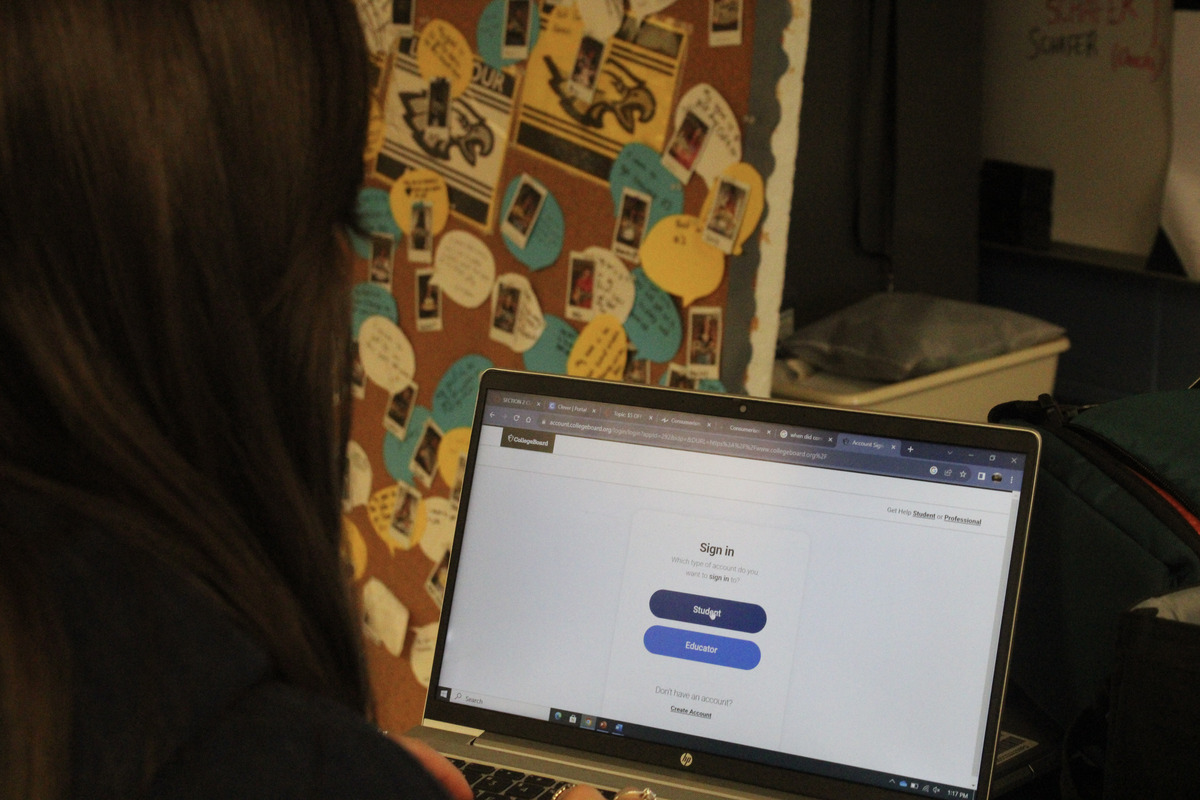Naples High School, along with the rest of the United States, officially abandoned the No. 2 pencil on College Board Administered tests. To be more accommodating, College Board reshaped their standardized tests to be completely digital, including exams such as the SAT, PSAT and ACT. As Naples High transitioned into this digital format, students formulated their own opinions on the major change and Florida’s new stance on testing regulations.
The utilization of school-provided laptops and computer facilities has revolutionized the way tests can be administered. Digital tests leave some students wanting the option for paper standardized tests due to the previous paper-based PSAT given throughout their middle and high school careers.
“I feel as though the change to digital testing is a completely new territory regarding the SAT and ACT since we’ve been practicing using paper materials our whole high school career. It’s unfair to be tested on something we are not accustomed to,” junior Mia Garciarena said.
This drastic change has left students questioning their abilities to master this type of format in their final years of high school. However, younger students at Naples High see this change positively, with the opportunity to demonstrate their skills fully with this updated format for testing.
“With a year to prepare, I think this shift to digital testing is beneficial to the underclassmen who will have a chance to showcase their college readiness through a digital setting,” sophomore Taylor Johnson said.
This trend of embracing the digital change to the previous paper-based standardized testing has been shown throughout the underclassmen students of Naples High because of their ability to practice this new format before they need to formally take one of these tests. However, juniors don’t have the luxury of altering their preparation for the testing format, which correlates to their lack of enthusiasm towards the change.
Connected to this adjustment is the legislative action Governor Ron Desantis is taking, claiming schools will see more progress testing throughout the year rather than one high-stakes test designed to assess a student’s knowledge at the end of the year.
“This bill is about parents and kids — taking away the stress of a one-size-fits-all test, giving each student a chance to succeed as an individual and empowering parents with the knowledge they need to help their kids reach their greatest potential,” speaker Chris Sprowls said. “Overall, this bill claims to regulate the stress associated with tests such as FSA and other end-of-year exams, replacing them with intermittent progress tests.”
However, this bill contributes to the influx of testing within schools. Students find themselves overwhelmed with the addition of progress testing and changes in formatting within standardized exams. This may be a considerable drawback to the inclusion of progress testing that Florida schools might want to consider.
All in all, as Naples High moves into 2024, students can expect a change within standardized and progress testing. Switching from paper to digital may be a challenge for students, however, adapting to this change will be the best way to be prepared for the future regarding more digital formats being utilized.






